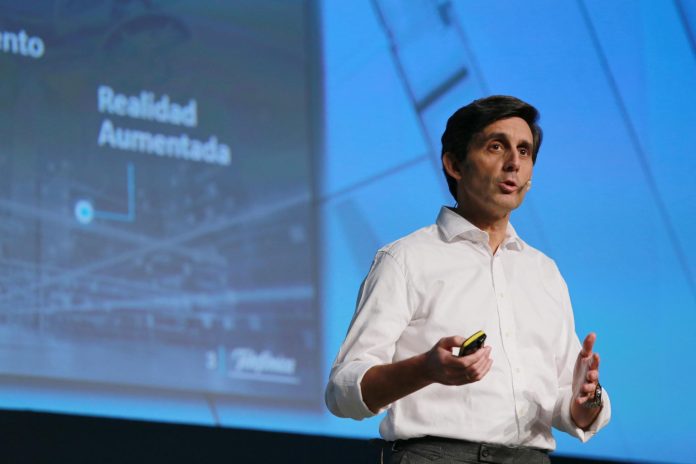Telefónica has revealed a five-point reinvention plan to set it for “the next 100 years”. The strategy leans heavily into the digital transformation of industry and society, and sees the Spanish operator establish a brand new digital change unit, called Telefónica Tech, which it reckons will generate €2 billion in new revenue from selling cybersecurity, IoT and analytics, and cloud services.
José María Álvarez-Pallete, the company’s chairman and chief executive, signed off a letter, stating the company is embarking upon “a technology revolution, [and] also a social revolution that will alter our immediate future.” He said the new strategy, which puts focus squarely on its four biggest markets.
He wrote: “I’m talking about a new Telefónica. A company prepared for our next 100 years. A Telefónica committed to making our world more human and more sustainable. A company with the purpose of generating value for all its stakeholders and society for the long term and creating relationships of trust, with growth and efficiency.”
His letter (“the most important I have written”), running to four pages, is available here. The company said the move will generate €2 billion of revenue and a jump in operating cash flow margin of two percentage points by 2022. It said the revenue lift will come from Telefónica Tech.
Álvarez-Pallete proclaimed company’s new action plan will “solve challenges that until now society had not been able to conquer”. He put it in the context of “geopolitical, macroeconomic and regulatory uncertainties,” plus slow-down in growth from the sale of voice and data services. He also cited the rise of “new competitors subject to different rules”.
But he put it in the context of industrial revolution, as well, brought on by the combination of 5G networks and edge computing, advanced analytics and AI, and ubiquitous IoT.
“The explosion of connectivity and artificial intelligence and the new needs of our customers – the central axis of our strategy – require innovative, intelligent and sustainable technology solutions that generate a positive impact on the environment and help manage the digital transition… They represent a huge opportunity for our customers, and for us as well. And we are ready to take advantage of it.”
Apart from the new tech focus, which makes play of IoT, Telefónica is restructuring its regional operating companies, by putting focus on key markets – Spain, Brazil, the UK and Germany. These four geographies, out of 14 in total, contributed 63 per cent of the Spanish group’s total connections (218 million) and 80 per cent of its revenues, profits and cash flow at last count, in the third quarter of 2019.
Its senior management teams remains the same in these markets. Meanwhile, it will spin off its Latin American business as an autonomous unit with a dedicated team.
But the creation of a new division, called Telefónica Tech, is arguably the most compelling shift in its bid for growth and investors. Telefónica Tech will bring together digital businesses with high growth potential, it said. The unit will work as a digital change consultancy for the fourth industrial revolution, seeking to support their own efforts with digital transformation.
The unit will, itself, be split into three businesses, selling cybersecurity, IoT and analytics, and cloud services – which exist already as part of its enterprise sales offer and are posting notable gains. “These businesses are already collectively growing revenues by more than 30 per cent and the aim is to boost this growth,” the company said. Telefónica Tech is in acquisition mode, it added, seeking to complement its portfolio.
The €2 billion revenue figure, which the company quoted as a 2022 target for new sales, will come from selling digital change solutions via Telefónica Tech, it stated. José Cerdán, global head B2B, will take charge of the unit, as chief executive, reporting to chief operating officer Angel Vilá.
Meanwhile, Telefónica has created another new division alongside, called Telefónica Infa, which brings together its infrastructure holdings, and chiefly its 50.01 per cent stake in mast company Telxius. Telefónica Infa will rent out towers, edge-compute systems, distributed antenna systems, data centres, and submarine cables to third-party operators.
Guillermo Ansaldo, head of global resources, will take charge of the division, also reporting to Vilá.
The fifth point in the five point plan is a “new organizational model to increase agility” – in effect, meaning, it is cutting management roles to remove duplication, as it slims down its regional operations with focus on four primary markets, and frees-up Latin America.
Álvarez-Pallete said the company is “focusing on those activities that provide a differential value to the rest of the units and that allow us to capture the value of scale, eliminating some existing duplications with the structures of the countries”.

